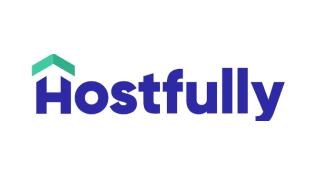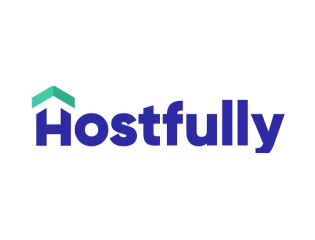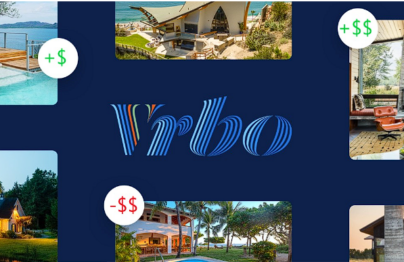Hosting with Airbnb vs Vrbo vs Booking.com
January 23, 2021 | wheelhouse
If you have a spare room, a holiday home, or just about any space that could be rented out, it’s never been easier and more convenient to do so.
Anyone can sign up and use online rental platforms like Airbnb, Vrbo, and Booking.com to turn spare rooms and rental properties into cash.
Airbnb is the most popular platform for hosts, catering to everything from shared rooms to fairytale castles and everything in between.
Vrbo is a vacation rental booking platform catering to holiday homes and rental properties.
Booking.com is traditionally a hotel booking site but enables hosts to list their properties.
All of these platforms are relatively easy to use and manage yourself, without needing to use a management company.
There’s a fee for using these services, and you’ll have to do some legwork, like creating your own marketing, sales and pricing strategy for your short-term rental, but overall they are incredible tools for exposure and getting bookings.
If you’re interested in renting out your property using an online platform, in this article, we’re taking a deep dive into what it’s like to be a host using these three major platforms.
Hosting with Airbnb vs Vrbo vs Booking.com
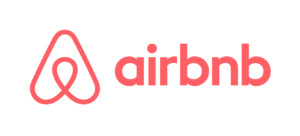
They decided to buy a few airbeds, put them on the floor of their apartment, and offer a more affordable hotel alternative.
Their first site was called “AirBed & Breakfast.” Fast forward a couple of years and some startup funding – and Airbnb.com was born. Airbnb is now one of the largest online communities and platforms for hosts and travelers looking to lease/book anything from overnight stays to long-term rentals.
You’ll find properties in more than 191 countries and 81,000 cities worldwide, and it’s estimated the platform has more than 150 million users.
Once you have an account, you can create a listing with all the details about your property. From renting a spare room to a holiday home, the more pictures and details you add to your listing, the more chance you’ll have of receiving a booking. Keep in mind, you’ll want to research your local market to identify how to price your listing. Click here to view average rental prices in your market.
One of the key things you have control over is whether or not you allow potential guests to make bookings instantaneously or if you want to review bookings before hosting them.
As the property owner, you also have full control over the dates on which your property is available and how much you’re charging. It’s up to you to put some clear procedures in place regarding how guests gain access to the property. Include guidelines on what you expect from them during their stay and any other special instructions you think are necessary.
You can communicate freely with guests through Airbnb’s platform. There is also an option to escalate any issues to Airbnb’s support staff.
Keep in mind that much of Airbnb’s algorithm is driven by their review system. You want guests to leave you a positive review, so always be honest, answer questions as quickly as you can, and remember the golden rule of sales; the customer is always right!
Host-Only Fees
This is a relatively new fee option that was introduced in 2020. Any new accounts default to this fee structure, and older Airbnb hosts can opt to change to it. The host-only fee typically ranges from 14%-16%. It’s mandatory for some hotels and hosts, and the percentage you’ll pay depends on when you signed up for an account.
Shared Host and Guest Fees
This is the model Airbnb has traditionally operated on. Hosts are subject to a fee of 3% or more, calculated on factors such as booking length and the total value of the booking.
The guest pays the remainder of the fee, somewhere in the region of 13%, on top of their booking total.
It’s estimated that, on average, hosts make about $924 per month using Airbnb. Obviously, many factors can affect that, but seeing $900+ as an average gives you an idea of how profitable renting property on Airbnb can be. See what people are earning in your market.
Here are some of the things you can expect as a host and some tips to help you protect yourself and have the best possible experience:
Answering questions
If you put yourself in the shoes of a traveler visiting a new place, you’re likely going to have some questions. So, as a host, you need to be prepared to answer questions. In peak season or if you have a popular destination, this can become time-consuming. You must answer questions quickly, so it’s a good idea to build a FAQ list as you go along.
Document everything before and after a guest
Unfortunately, disputes from guests will happen from time-to-time. The best way to protect yourself is to take pictures, video footage, and notes of your property before and after a guest stays.
This can prove to be a life-saver if a guest claims there was damage when they arrived or if something goes missing. Disputes can become tricky when it’s your word against theirs. Photographic or video evidence will go a long way.
Landlord duties
Using Airbnb is often the first experience someone has as a landlord. You need to carry out certain duties as a landlord, especially if you want your guests to leave positive reviews. Some of the things you’ll need to consider include:

As the name implies, Vrbo and Airbnb’s key difference is that Vrbo only caters to vacation rentals. Admittedly, just about any form of vacation rental sites. But you will not find spare rooms and inner-city apartments to get your head down while passing through.
Despite not being as well-known as Airbnb to the casual traveler, Vrbo has been in business since 1995. HomeAway acquired the company in 2006, a huge company that encompasses several home rental brands.
Moreover, Vrbo offers an estimate of how much you could rent your property. In part, this takes into account the data they collect from the more than 2 million listings they already have. So, it’s great data.
After you have uploaded all your images and other property details, listed your rate, and marked availability on your calendar, you’re all set to receive bookings from guests.
Subscription model
There is a one-off annual subscription fee of $499. This gives you access to all the tools you need to manage your listing and booking calendar.
Pay-per-booking model
If you don’t anticipate booking your rental often throughout the year, you can choose a pay-per-booking model. This way, you’re charged a flat 5% booking fee and an additional 3% credit card processing fee.
Looking at these two rates and deciding which is less expensive for you, roughly speaking, if you think you’ll collect more than $7,000 in total booking income throughout the year, the annual subscription of $499 is going to work out less expensive.

As a rule of thumb, the audience using Vrbo to find a property are looking for longer-term stays and are willing to book further in advance than the typical Airbnb guest, too.
If you have a dedicated vacation rental, it’s very realistic to expect a higher ROI on Vrbo than Airbnb.
The main thing you’re going to find yourself doing is vetting guests. Renting out a vacation home is a big deal. In an ideal world, you’d always have the perfect guests that left your home exactly how you found it.
This isn’t always the case, however. You can set some rules from your side, such as not allowing smoking indoors, asking that they do/don’t do certain things.
Do keep in mind that you can’t ask anything deemed as unreasonable, or you will not get any guests. You also have the right to say who can stay in your rental, but you can’t discriminate based on race, gender, or age under the Human Rights Act (1993).
You will also have to put some property management procedures into place. Things like making sure the property is cleaned after every guest, key drops off’s, taking pictures and notes before and after guests, and so on.

Their mission statement is simple, “to make it easier for everyone to experience the world.”
Traditionally, Booking.com was a platform for hotels and other businesses looking for guests. However, in recent years, they’ve opened up their platform, and now anyone can list a property.
There are some key differences between how Booking.com operates from a host’s side compared with the other two platforms we’ve reviewed, Airbnb and Vrbo.
The main difference is that Booking.com is just a booking platform at its core. Travelers can view properties and make instant bookings based on the availability you’re advertising.
Airbnb and Vrbo certainly have a stronger sense of community spirit. Guests and hosts are encouraged to leave reviews of each other, there is more emphasis on communication, and they handle their marketing very differently.
When you register for an account and list your property, you need to wait for manual approval from Booking.com.
Once approved, you can create your booking policy, set your rates, select your payment method, and fill out any other details needed to get your listing looking exactly how you want.
Something you need to be aware of when using this platform, especially if you’ve used Airbnb or Vrbo, is that bookings are instantly confirmed by default.
This can easily result in a double booking if you don’t keep on top of your availability calendar. If you do a double book, you’re responsible for finding those guests accommodation at your expense.
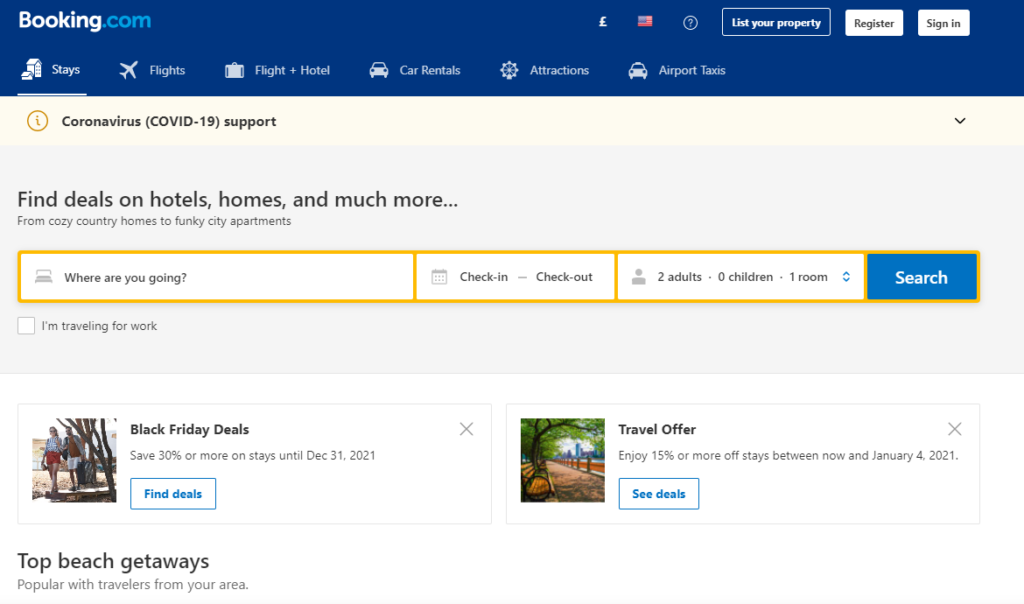
This seems a lot higher at face value than Airbnb’s 3% using their shared host and guest fees. But that’s because, with Airbnb, you pay 3% as a host, and the guest pays 12%. So both work out at exactly 15%.
Vrbo charges hosts 8% and guests 6-12% depending on the type of booking. This means you’re paying more as a host using Booking.com over the other platforms we’ve covered. But guests are paying less, so the goal is to factor this into your price to achieve your desired profit.
Of course, this is factored into the price by most hosts to put some of that cost onto the guest, but it’s a little trickier to market.
Still, at around 15%, there’s no reason why you can’t achieve a healthy ROI. You’re often competing against large hotel chains in your area with much larger overheads.
If we had to say one platform was less refined than another, Booking.com does feel like it’s a step behind the other two.
This may be because it’s a platform built for hotels and businesses first, unlike Vrbo and Airbnb, which are built for hosts and great for communities to interact.
All the same property management tasks apply. You want to deliver the best possible experience, so your guests leave a glowing and positive review.
Conclusion
That way, your listing will be seen by millions of more web browsers rather than just using one platform. That can’t be a bad thing, just be careful to price correctly across each platform.
Either way, the online rental market isn’t slowing down.
One thing you can be sure of; if you have a property in an area with demand, using one of these platforms is the easiest way to achieve a good ROI by renting your property out with minimal work on your part.
As for which platform is best for you – that depends on a few factors as each offers some unique benefits.
Airbnb is, no doubt, the leading marketplace for short-term rentals and small to shared spaces. While Vrbo specializes in vacation homes, and Booking.com allows you to reach a whole new audience of travelers.
Blog search
Recent posts
-
Wheelhouse Presents: Ratestrology
April 1, 2023 | BY Andrew Kitchell
-
Short-Term Rental Agreement: What to Include & Free Templates
January 17, 2023 | BY Hailey Friedman
-
Hostfully Review: Vacation Rental Management Software [2023]
January 14, 2023 | BY Hailey Friedman
-
Escapia Software Review [2023]
January 6, 2023 | BY Hailey Friedman





